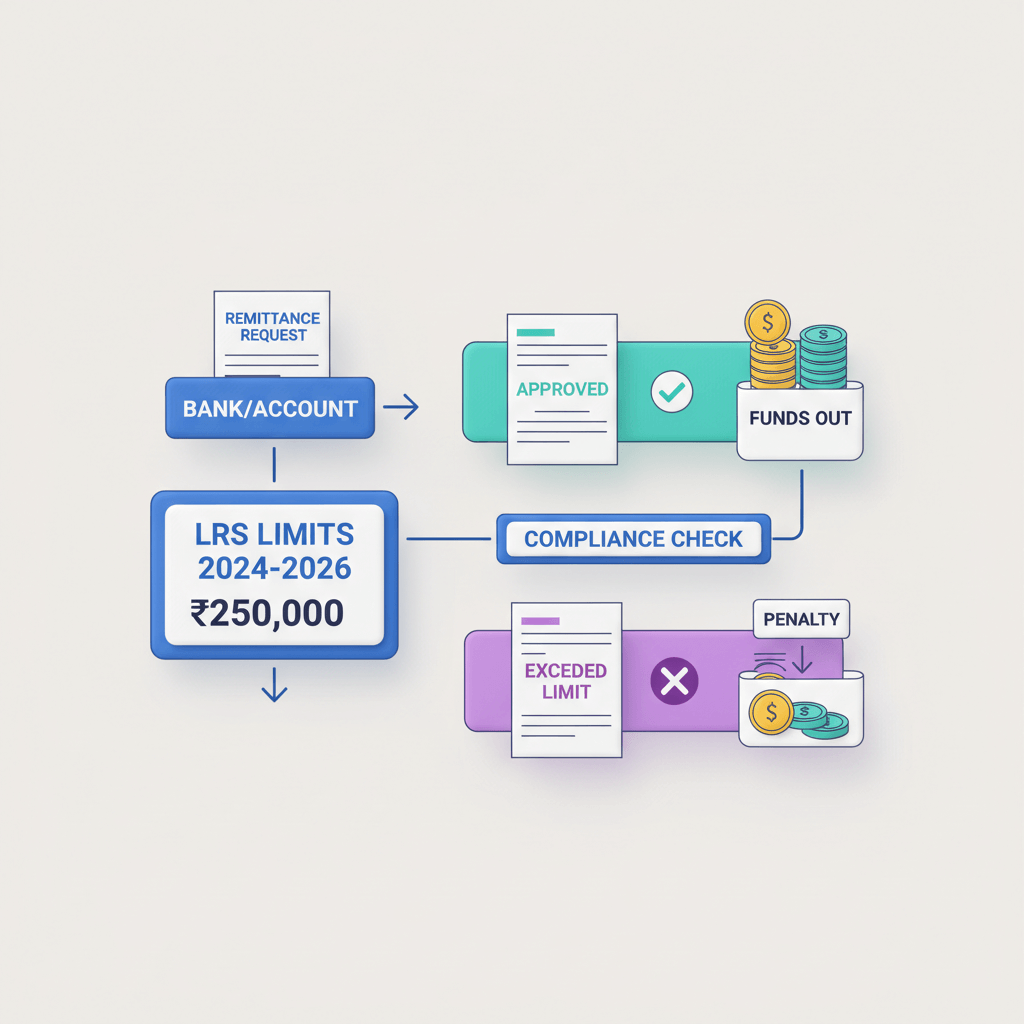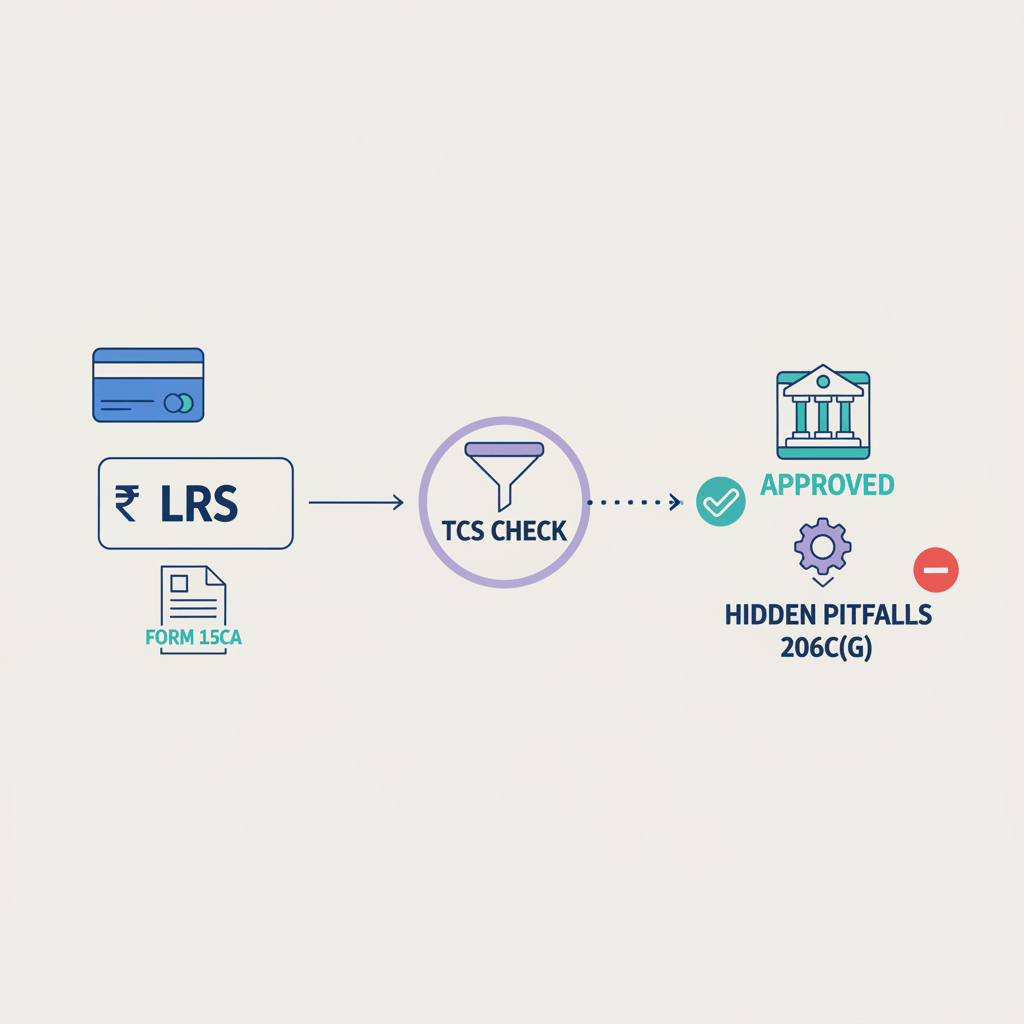If you're planning to send money overseas, it is necessary you know about tax on business remittances in India and fees along the way. One of these fees is the Goods and Services Tax (GST) on outward remittance.
Don't worry if you're not familiar with this term because we’ve got you covered with this blog post.
In this post, we'll take a deep dive into GST on outward remittance and help you understand everything you need to know. We'll start by explaining what GST is and how it applies to outward remittances.
We'll then discuss the different scenarios in which GST applies, the GST rates applicable, and the consequences of not paying the GST amount on time.
So, let's dig in!
What is GST on outward remittance, and when does it apply?
Outward remittance is a process of sending money from one entity in one country to another country.
In general, there are two ways to send money overseas - through Authorised Dealers (AD) and Online Payment Gateways (OPG).
The GST on outward remittance depends on the purpose of the remittance. If the purpose is for a "taxable service" provided by the recipient outside India, then GST will apply.
Make Note: A "taxable service" is any service that falls under the GST Act 2016 and is provided by a person located outside India to a person located in India.
What Is the Process Involved For GST on Outward Remittance?
The process involved in the way GST works on overseas payments is simple.
Recipients of the service need to pay GST on the value of the service received. The GST rate is currently 18%. If the purpose of the remittance (in accordance to the purpose code for outward remittance )is for a non-taxable service or goods, then GST does not apply.
If GST on outward remittance is applicable, you must pay the GST to the government. You can do this by generating an Electronic Accounting System (EAS) challan through the GST portal and paying the GST amount using the challan.
When GST on outward remittance is applicable, it means the amount sent by the recipient outside India is considered taxable under the GST Act. As a result, you're required to pay GST on the value of the service received.
To pay the bank charges on foreign outward remittance for GST on outward remittance, you need to generate an Electronic Accounting System (EAS) challan through the GST portal. An EAS challan contains details like the name of the taxpayer, the due date for payment, etc.
For generating an EAS challan, you need to log in to the GST portal using your GSTIN (Goods and Services Tax Identification Number) and password.
Post login, you can navigate to the "Services" tab and select the "Payments" option. From there, you can select the "Create Challan" option and enter the relevant details such as the GST amount payable and the purpose of the payment.
After entering the details, you can preview the challan and make the cross border payment. Post the successful payment, you'll receive a confirmation message, along with the EAS challan.
GST Rates on Outward Remittances
You must pay the GST amount within the due date that is mentioned on the EAS challan to avoid any interest or penalty charges. Also, it would be wise to keep a copy of the EAS challan as proof of forex payment for your records.
When you fail to pay the GST on outward remittances, you may be liable to pay interest and penalties. This is because GST is a tax levied by the government, and failure to pay it can result in legal consequences.
The interest on the unpaid GST amount on outward remittance is calculated at a rate of 18% per annum. This means that if you delay your payment of GST by one year, you'll pay an additional 18% of the GST amount as interest.
Apart from interest, you may also be liable to pay GST on outward remittance penalty of up to 10% of the GST amount. The penalty is imposed to ensure that taxpayers pay their GST dues on time. This is calculated as a percentage of the unpaid GST amount.
GST on outward remittances for businesses
Outward remittances for businesses in India do not attract Goods and Services Tax (GST). When businesses make such remittances for purposes like importing goods or services, they are treated as exports.
Under the GST regime, exports are categorized as zero-rated supplies, meaning that no GST is imposed on these transactions. This zero-rating approach aims to maintain the competitiveness of exports in the global market by exempting them from GST.
It's worth noting, however, that while GST does not apply to the outward remittance itself, other taxes or charges may still be relevant based on the specific nature of the export and the applicable regulations. For instance, customs duties, cess, or other levies might be applicable depending on the circumstances.
Make Note: In case you realize that you have missed paying the GST amount for inward or outward remittance, you can use the same EAS challan process to make the international business payment, but you'll need to select the "late fee" option and enter the relevant details.
What Will Happen If You Fail To Pay GST Taxes on Outward Remittance?
Failure to pay the GST on outward remittances can result in interest and penalty charges. The interest is calculated at 18% per annum, and the penalty can be up to 10% of the GST amount.
It's important to pay your GST dues on time to avoid any legal consequences. In case you miss paying the GST amount, you can pay it as soon as possible to minimize the interest and penalty charges.
Meaning of zero-rated supply under GST
Zero-rated supply in the context of GST on outward remittance in India refers to the classification of goods or services that are taxable under GST but carry a tax rate of zero percent.
Zero-rated supplies primarily pertain to exports, where goods or services are supplied to a foreign country or a Special Economic Zone (SEZ). The significance of zero-rated supplies lies in the fact that exporters are not liable to pay GST on the goods or services they export.
Businesses engaged in zero-rated supplies can benefit from the Input Tax Credit (ITC) mechanism, which enables them to claim a refund or utilize the ITC against their tax liability. This provision ensures that the taxes paid on inputs used within the zero-rated supply chain do not become an additional cost for the exporter.
In certain instances, services provided to recipients outside India may still be subject to GST at the standard rate. However, if the international business payment method is apt and such service is received in foreign currency along with currency conversion fee, it qualifies as an export of services. In this case, the exporter can claim a refund of the GST paid or apply the ITC to offset their tax liability.
Additionally, zero-rated supplies encompass goods or services supplied to Special Economic Zones (SEZs) within India. SEZs are designated areas that offer tax incentives and benefits to businesses. By treating supplies made to SEZs as zero-rated, the aim is to encourage investment and foster economic growth within these zones.
To avail of the benefits of zero-rated supplies, exporters must fulfill specific conditions, comply with relevant foreign money transfer rules and regulations, maintain proper documentation, and follow prescribed procedures for claiming refunds or utilizing the ITC.
Make Note: While zero-rated supplies do not attract GST, they are not exempt from GST. The key distinction is that zero-rated supplies are subject to GST on all outward remittances but at a rate of zero percent.











